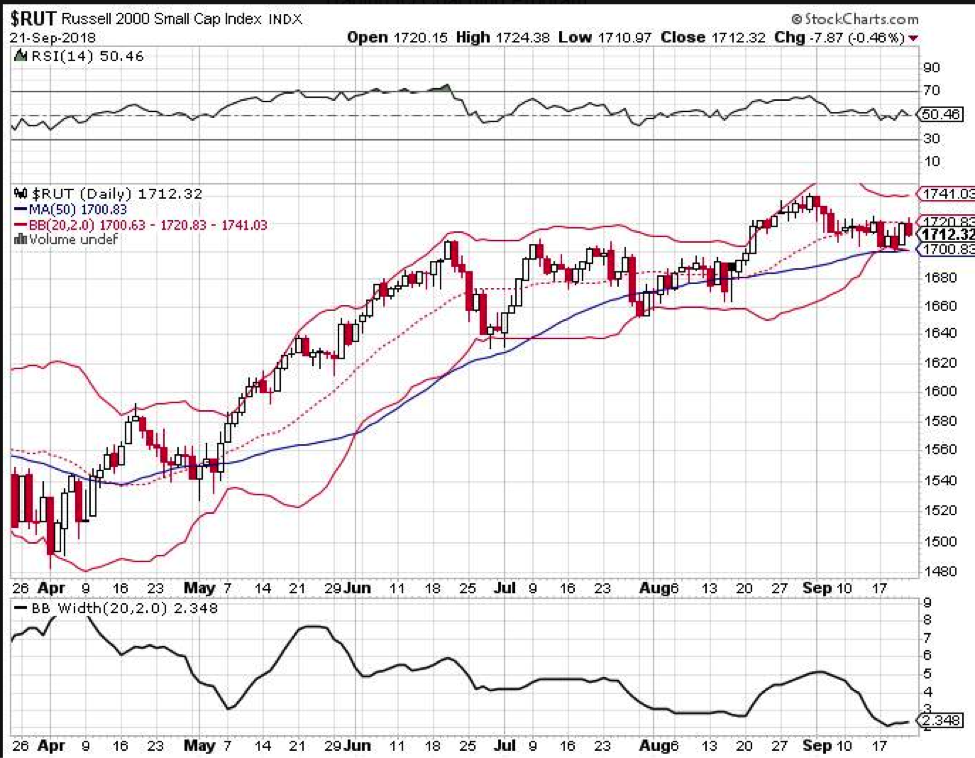Bollinger Bands are an excellent technical indicator for traders to watch and use in their trading analysis and execution.
Two charts that caught my eye recently are the Russell 2000 (RUT) and the Gold ETF (GLD).
Last night, I analyzed the Bollinger bands for the Gold ETF (GLD) and discussed the current trading setup. In this article, I’ll focus on the Russell 2000 (RUT).
Here’s a segment from my recent article on Bollinger bands and why I use them:
I love using them in combination with the Bollinger Band width indicator which can be an awesome early indicator of whether a stock is likely to increase or decrease in volatility going forward.
BollingerBands are price channels with the upper band being 2 standard deviations above the middle line and the lower band being 2 standard deviations below from the middle line. The middle line is typically a 20 day moving average.
One of my favorite ways to use Bollinger Bands is to wait until they show extreme contraction and then play for a breakout.
I don’t care which way the breakout goes, as long as it breaks out.
Looking at the chart below, we can see that the Russell 2000 has tightening Bollinger Bands in comparison to the past several months.
For a trade setup like this, I would usually buy the 6-month straddle. I would also have a timed exit to close this trade after 1 month to minimize any impact from time decay. The Russell 2000 has low implied volatility versus its recent past.
Personally, I might wait another day or two to see if we get some more sideways action before opening a trade along these lines.
Catch more of my options trading analysis over at my site Options Trading IQ. Thanks for reading.
Twitter: @OptiontradinIQ
The author does not have a position in mentioned securities at the time of publication. Any opinions expressed herein are solely those of the author, and do not in any way represent the views or opinions of any other person or entity.









